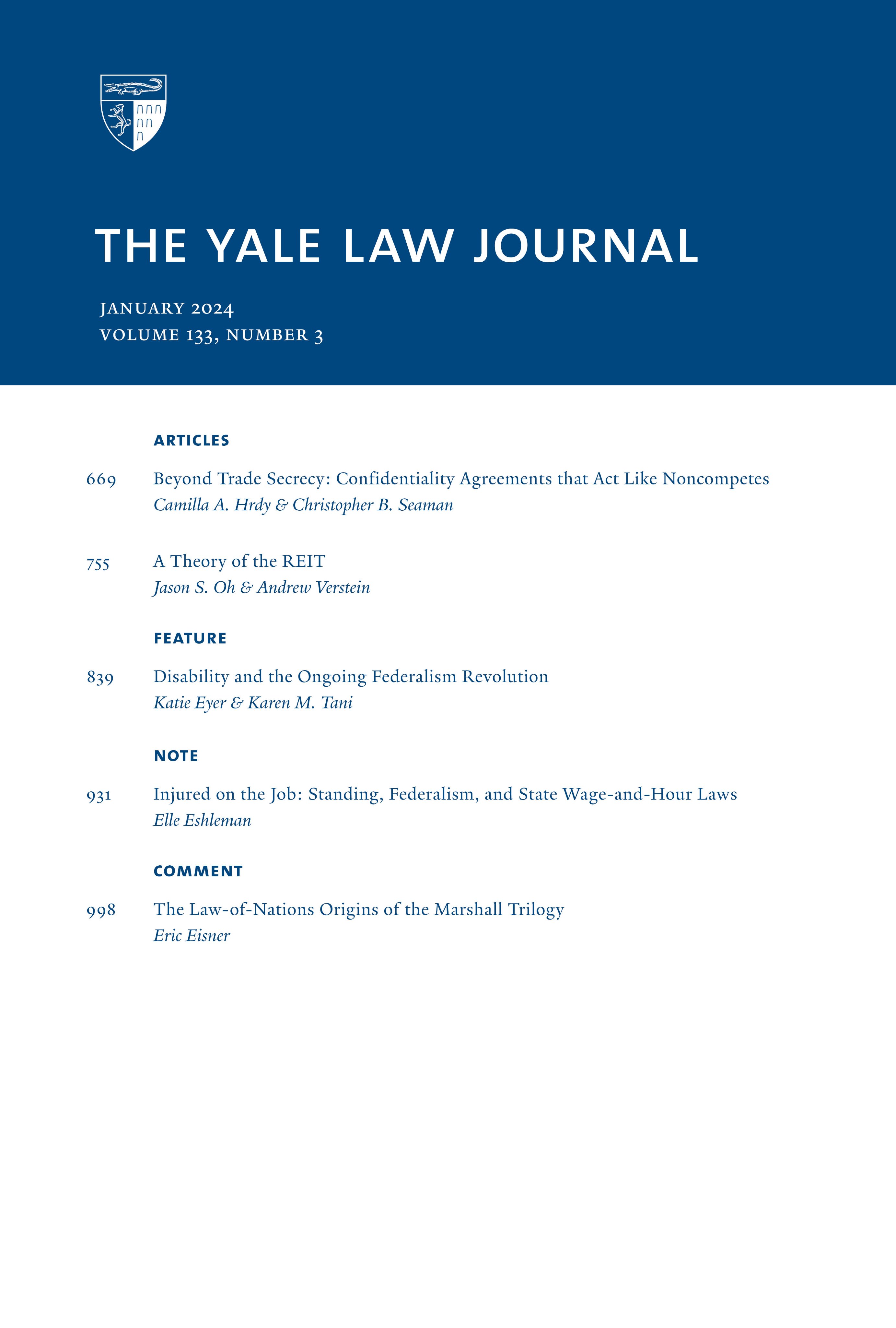Consumerism Versus Producerism: A Study in Comparative Law
IF 5.2
1区 社会学
Q1 LAW
引用次数: 53
Abstract
The spread ofAmerican-style "consumerism" is a burning global issue today. The most visible symbols of American consumerism, large enterprises like Wal-Mart and McDonald's, attract vitriolic attacks in many parts of the world. Political conflict in Europe (and elsewhere) turns largely on the question of whether legal systems everywhere must inevitably follow the American model. Despite the global importance of the consumerism debates, though, comparative lawyers have found little to say. In an effort to develop an analytic comparative law approach to the problem of global consumerism, this Article proposes to revive an analytic distinction that was common in the 1930s: the distinction between "consumerism" and "producerism." A producerist legal order tends to revolve around rights and interests on the supply side of the market: it focuses on the interest of some class of producers or distributors (such as workers, small shopkeepers, or the competitors in a given industry). A consumerist legal order, by contrast, tends to focus on rights and interests on the demand side of the market-in particular, on the consumer economic interest, understood primarily as an interest in competitive prices. Producerist legal orders can take forms quite different from consumerist ones, both when it comes to economic regulation in the law of antitrust and retail and when it comes to fundamental conceptions of the nature of rights. The distinction between consumerism and producerism involves some real complexities, and it must be used with care. Nevertheless, this Article argues, it is of fundamental importance for classifying and analyzing legal systems, and in particular for understanding basic and persistent differences between continental Europe and the United States. AUTHOR. Ford Foundation Professor of Comparative and Foreign Law, Yale Law School. Earlier versions of this paper were presented at workshops at Columbia, Cornell, Duke, and NYU law schools. I am grateful to participants in all four forums for their comments. I also gratefully acknowledge detailed and useful comments by Ian Ayres, Giacinto della Cananea, Rochelle Dreyfuss, Eleanor Fox, David Gerber, Christian Joerges, Anette Kur, Susanne Lepsius, Mike Levine, Joseph Raz, Alan Schwartz, Frank Upham, and John Witt. HeinOnline -117 Yale L.J. 34消费主义与生产主义:比较法研究
如今,美国式“消费主义”的蔓延是一个亟待解决的全球性问题。沃尔玛(Wal-Mart)和麦当劳(McDonald's)等大型企业是美国消费主义最明显的象征,它们在世界许多地方遭到了尖刻的攻击。欧洲(以及其他地区)的政治冲突主要围绕着这样一个问题:各地的法律体系是否都必须不可避免地遵循美国模式。尽管关于消费主义的争论具有全球重要性,但比较律师们却没有什么可说的。为了发展一种分析比较法方法来解决全球消费主义问题,本文建议恢复20世纪30年代常见的分析区分:“消费主义”和“生产主义”之间的区别。生产者主义的法律秩序倾向于围绕市场供给方的权利和利益:它关注某些生产者或分销商(如工人、小店主或特定行业的竞争对手)的利益。相比之下,消费主义法律秩序倾向于关注市场需求方的权利和利益,特别是消费者的经济利益,主要被理解为对竞争性价格的兴趣。无论是在反托拉斯法和零售法中的经济监管方面,还是在权利本质的基本概念方面,生产主义法律秩序的形式与消费主义法律秩序的形式都截然不同。消费主义和生产主义之间的区别涉及到一些真正的复杂性,必须谨慎使用。尽管如此,本文认为,它对法律制度的分类和分析,特别是对理解欧洲大陆和美国之间基本和持久的差异具有根本的重要性。作者。耶鲁大学法学院福特基金会比较与外国法学教授。本文的早期版本曾在哥伦比亚大学、康奈尔大学、杜克大学和纽约大学法学院的研讨会上发表。我感谢所有四个论坛的与会者所提出的意见。我还要感谢Ian Ayres、Giacinto della Cananea、Rochelle Dreyfuss、Eleanor Fox、David Gerber、Christian Joerges、Anette Kur、Susanne Lepsius、Mike Levine、Joseph Raz、Alan Schwartz、Frank Upham和John Witt详细而有用的评论。耶鲁L.J. 34
本文章由计算机程序翻译,如有差异,请以英文原文为准。
求助全文
约1分钟内获得全文
求助全文
来源期刊

Yale Law Journal
LAW-
CiteScore
4.50
自引率
6.20%
发文量
0
期刊介绍:
The Yale Law Journal Online is the online companion to The Yale Law Journal. It replaces The Pocket Part, which was the first such companion to be published by a leading law review. YLJ Online will continue The Pocket Part"s mission of augmenting the scholarship printed in The Yale Law Journal by providing original Essays, legal commentaries, responses to articles printed in the Journal, podcast and iTunes University recordings of various pieces, and other works by both established and emerging academics and practitioners.
 求助内容:
求助内容: 应助结果提醒方式:
应助结果提醒方式:


